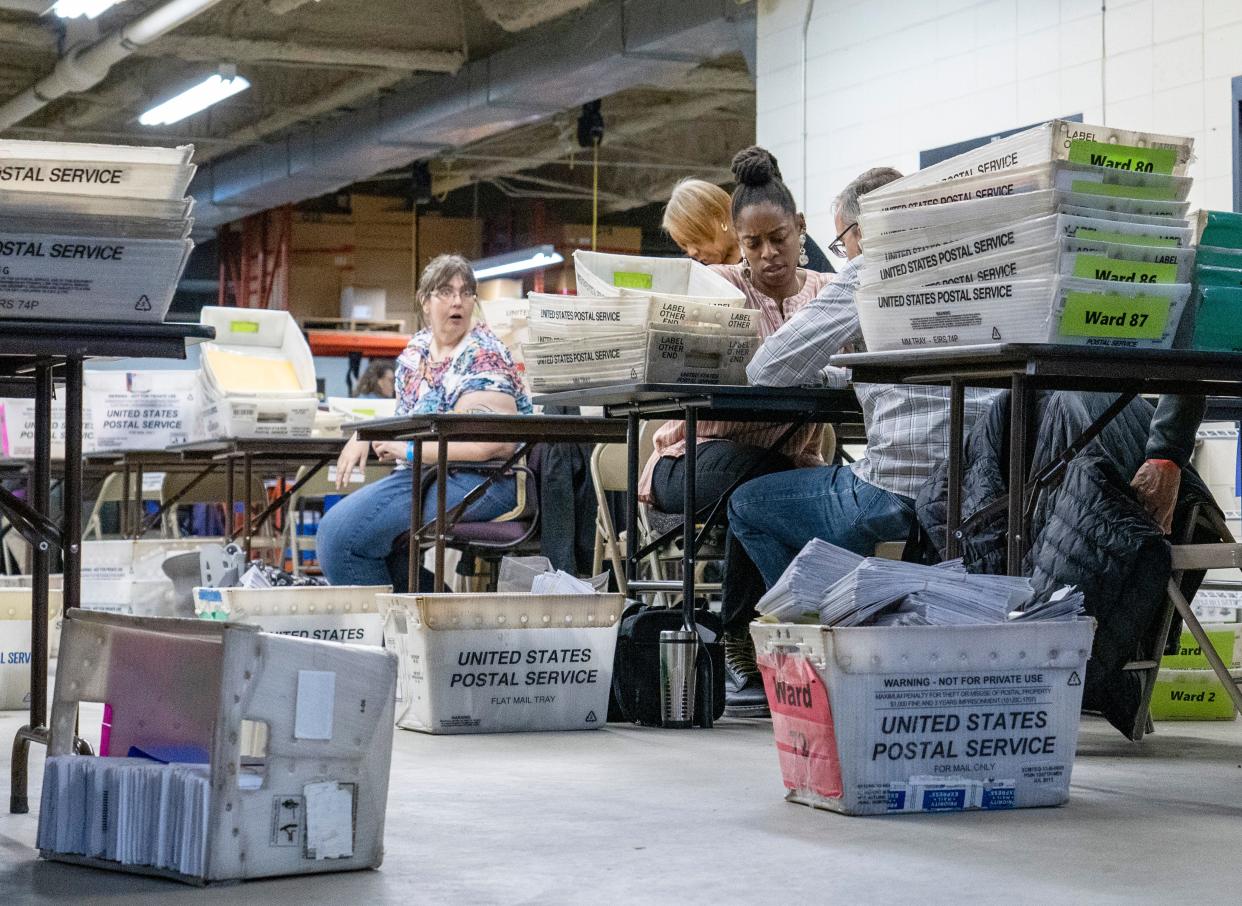Clerks won't be able to process ballots early for 2024 elections, Senate lacks votes to pass

- Oops!Something went wrong.Please try again later.
The Senate doesn't have enough Republican votes to send a bill to the governor that would allow clerks to begin processing absentee ballots on Monday, Senate Majority Leader Devin LeMahieu, R-Oostburg, said Sunday.
"I'm not sure that we have enough votes to pass that this session," LeMahieu told WISN-TV's 'Upfront' host Matt Smith.
Without a final vote in the Senate, election officials will not have the ability to start processing absentee ballots a day early for the upcoming 2024 elections. Wisconsin is one of only a handful of states that don't allow clerks to begin processing absentee ballots prior to Election Day.
Clerks and bipartisan lawmakers have pushed for the change to prevent voter confusion and conspiracies that result from large amounts of ballots being processed late and added to totals, sometimes changing which candidate is in the lead.
LeMahieu's comments almost certainly mean the bill will not be approved this year. The bill passed the Assembly in November on a voice vote, and Democratic Gov. Tony Evers has said he will sign it if no "poison pills" were added to the legislation.
LeMahieu added he's been an author of the legislation in the past, and previously told reporters he does not oppose the bill. When asked if he was pushing to get the bill passed, LeMahieu said "it's not my job to push or hold back individual bills."
LeMahieu says Milwaukee will need to count its ballots faster
Lawmakers have pointed to Milwaukee to show how absentee ballot totals can be added late and lead to false claims of fraud. In 2018, more than 47,000 absentee ballots in Milwaukee gave Evers his first solid lead in the race for governor against Republican Gov. Scott Walker.
In 2020, the later tally helped move Democrat Joe Biden over President Donald Trump, fueling the former president's false claims about election fraud in Wisconsin.
When asked if Republicans will be to blame in November if Milwaukee again reports results late at night, LeMahieu said other large cities in Wisconsin count their ballots on time, such as Dane County.
"If this bill doesn't go through, it's incumbent on Milwaukee to count their ballots fast enough," LeMahieu said. He added he doesn't believe the city is counting ballots quickly enough.
In a December hearing, Milwaukee Election Commission executive director Claire Woodall testified that even with "a significant investment of staff and resources," Milwaukee was not able to complete processing absentee ballots until 1:30 a.m. in 2016.
"When staff must work over 20 hours straight, an environment is created that presents unnecessary risk for human error. The efficiency and accuracy that already exists will undoubtedly increase if we are able to eliminate the need for these grueling hours," Woodall said.
The legislative fix wouldn't allow clerks to count the ballots early. But they could get ahead on other tasks like ensuring the voter is not ineligible due to a felony conviction, checking that the envelope contains information like a witness signature and taking the ballot out of the envelope to run it through equipment.
Bill remains in committee, Republican chair hasn't held vote
LeMahieu said the Republican caucus would discuss the bill if it passes out of committee. He added he doesn't expect the committee to hold a vote for it because "a couple members of the committee have problems with the bill."
The chair of the Senate Committee on Shared Revenue, Elections and Consumer Protection, Republican Sen. Dan Knodl of Germantown, said in a newsletter to constituents that he didn't plan to hold an executive session to recommend the bill for passage.
"Monday processing of ballots for efficiency sounds like a reasonable plan," Knodl said. "Unfortunately, there are concerns with the chain of custody of ballots and the hearing revealed the disparity of partisan observers of central count processing."
Clerks have said the security provisions in the bill are strong, such as keeping equipment and materials in a double-locked location and putting tamper-evident seals on machines to prevent printing reports or looking at results early.
This article originally appeared on Milwaukee Journal Sentinel: Bill aimed at "ballot dump" perceptions doesn't have Senate votes to pass

